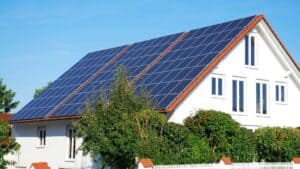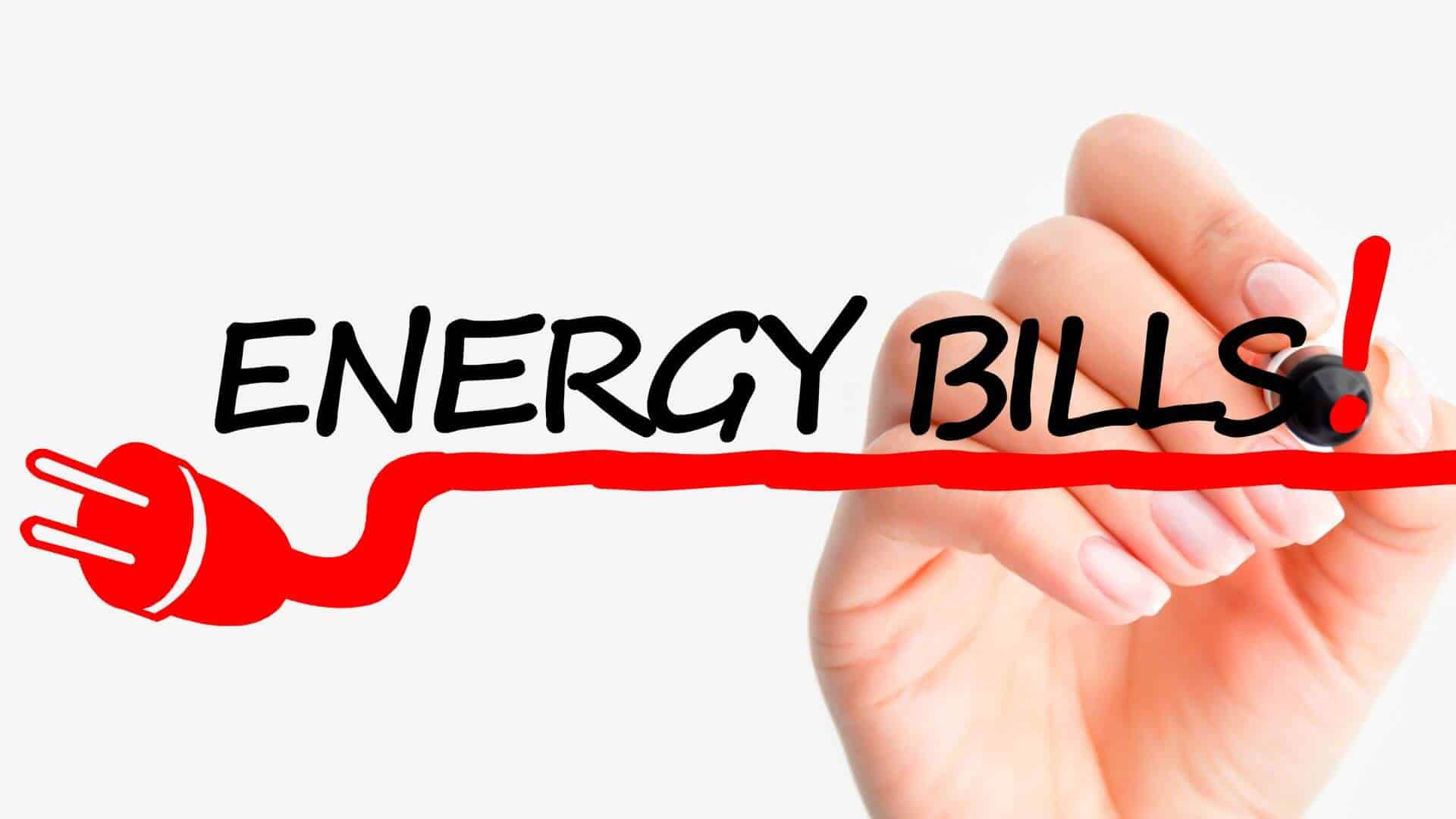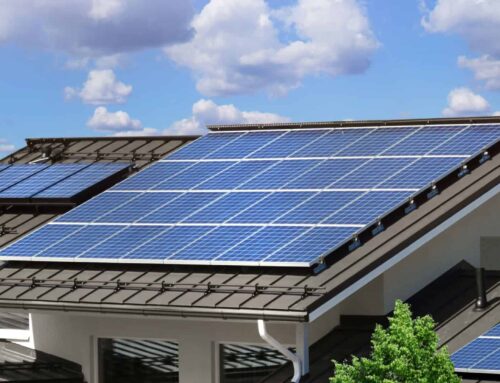Solar power panels are an excellent choice for Rhode Island homeowners. With plenty of sunshine, the Ocean State offers a great opportunity to reduce your carbon footprint and save on electricity bills. In this blog, we’ll cover the key benefits of going solar and why it’s a smart move for your home and the environment.
Understanding The Environmental Benefits Of Solar Power Panels For Homes In Rhode Island

Harnessing Clean and Renewable Energy
Solar power panels utilize Rhode Island’s abundant solar radiation to generate electricity. By harnessing the sun’s power, solar panels create a sustainable and renewable source of energy. This clean energy option reduces reliance on fossil fuels and helps decrease greenhouse gas emissions, contributing to a cleaner and healthier environment.
Reducing Carbon Footprint
Solar power panels enable homeowners in Rhode Island to reduce their carbon footprint significantly. By generating electricity from solar energy technologies, households can reduce their reliance on electricity generated from non-renewable sources such as coal or natural gas. This shift to solar power helps lower greenhouse gas emissions and combat climate change.
Supporting the Solar Industry and Local Economy
Investing in solar power panels supports the growing solar industry in Rhode Island. The installation and maintenance of solar power systems contribute to job creation and stimulate the local economy. By going solar, homeowners become part of the movement towards clean energy and help drive the development of a sustainable energy sector.
Energy Independence and Resilience
With solar power panels, homeowners in Rhode Island can generate their electricity and reduce their dependence on the power grid. During power outages or disruptions, solar energy systems with energy storage can provide backup power, ensuring the continuity of essential electricity supply. This enhances energy resilience and reduces vulnerability to grid failures.
Financial Savings and Long-Term Investment
Investing in solar power panels can lead to long-term financial savings for Rhode Island homeowners. By generating electricity from the sun, homeowners can offset their traditional electricity consumption, resulting in lower electricity bills over time. Additionally, solar panels can increase property value, making it a smart long-term investment.
Rhode Island’s abundant solar radiation to generate electricity. By harnessing the sun’s power
By adopting solar power panels, homeowners in Rhode Island actively promote and encourage the use of sustainable energy practices. Choosing solar energy as a clean and productive electricity source helps create a greener future and inspires others to follow suit, contributing to a more sustainable and environmentally conscious community.
Solar power panels offer numerous environmental benefits for homes in Rhode Island. By harnessing solar energy, homeowners can reduce their carbon footprint, support the local economy, enhance energy independence, and promote sustainable energy practices. Going solar is not only a smart choice for homeowners but also a significant step towards creating a cleaner and more sustainable future for Rhode Island and beyond.
How Solar Panels Reduce Electricity Bills For Rhode Island Homeowners

Solar Power: A Cost-Effective Solution
Solar panels, powered by advanced solar technologies, offer Rhode Island homeowners an effective strategy to reduce their electricity bills. By harnessing the sun’s abundant energy, solar panels convert sunlight into usable electricity, providing an efficient and sustainable alternative to traditional electricity sources.
Generating Solar Electricity
Solar panels, also known as photovoltaic (PV) panels, utilize solar cells to convert sunlight into electricity. These cells, made of semiconducting materials like silicon, absorb photons from direct sunlight, creating an electric field that generates a flow of electrons. This flow of electrons is then harnessed as electrical energy.
Storing Solar Energy
The excess electricity generated by solar panels during the day can be stored for later use. Homeowners can opt for solar battery systems to collect surplus energy produced by their solar panels. These batteries store the energy and release it when the electricity demand exceeds the solar generation, such as during nighttime or cloudy days. This stored energy helps reduce reliance on the grid and further lowers electricity bills.
Savings from Net Metering
Rhode Island homeowners who install solar systems can take advantage of net metering. This program allows homeowners to receive credits for any excess electricity they generate and supply back to the grid. These credits can then be used to offset the electricity consumed by the grid during times when the solar system isn’t producing enough electricity, such as at night or during peak energy demand periods. Net metering effectively reduces electricity bills and provides additional savings.
Financial Incentives and Rebates
Rhode Island residents can also benefit from various financial incentives and rebates offered for solar installations. These incentives, such as federal tax credits and state-specific programs, can help reduce the upfront costs of installing solar panels, making them even more affordable and cost-effective in the long run.
Embracing solar power not only reduces electricity bills but also contributes to a cleaner environment and a more sustainable future. As Rhode Island continues to experience solar growth, more residents are recognizing the economic and environmental benefits of solar electricity generation, making it an attractive choice for reducing electricity expenses while embracing renewable energy sources.
Exploring Solar Energy As A Renewable And Sustainable Energy Source

Harnessing the Power of the Sun: Introduction to Solar Energy
Solar energy, derived from the sun’s radiant heat and light, holds immense potential as a renewable and sustainable energy source. As technology advances, so does our ability to effectively collect and utilize this abundant resource. Solar energy can be harnessed through various methods, including concentrating solar power (CSP) and photovoltaic (PV) systems, to produce electricity, heat water, and power a wide range of applications.
Photovoltaic Systems: Converting Sunlight into Electricity
Photovoltaic (PV) systems, comprising solar panels made up of photovoltaic cells, directly convert sunlight into electricity. These cells, typically made of silicon, absorb photons from the sun’s energy, generating an electric current through a process known as the photovoltaic effect. This electricity can be used immediately, stored in batteries for later use, or fed back into the electrical grid through a power purchase agreement.
Solar Thermal Systems: Harnessing the Heat of the Sun
Solar thermal systems harness the sun’s energy to produce heat or thermal energy. This energy can be utilized for various purposes, including space heating, water heating, and even industrial processes. Flat plate collectors or concentrating systems capture and focus sunlight, raising temperatures and initiating chemical reactions to generate heat. Thermal storage systems, such as a storage tank, can store excess heat for use during periods of low sunlight or high demand.
Solar Farms and Power Plants: Scaling Up Solar Energy Generation
Solar farms, also known as solar parks or solar power plants, are large-scale installations that generate electricity from the sun’s energy. These facilities consist of multiple solar panels or mirrors that collect and concentrate sunlight. The energy generated is then converted to electricity using PV systems or CSP technology. Solar farms play a crucial role in supplying clean energy to the electrical grid, reducing reliance on fossil fuels, and contributing to a more sustainable future.
Advantages of Solar Energy: A Bright Future for Clean Power
Solar energy offers numerous advantages as a renewable energy source. It is abundant, freely available, and inexhaustible, making it a reliable and sustainable option for meeting our energy needs. Solar power reduces greenhouse gas emissions, improves air quality, and minimizes our carbon footprint. As technology advances and costs continue to decrease, solar energy is becoming increasingly accessible and economically viable, paving the way for a future powered by clean and renewable sources.
By exploring the vast potential of solar energy, we can embrace a sustainable and environmentally friendly alternative to traditional energy sources. As we continue to optimize solar technologies, invest in solar infrastructure, and prioritize renewable energy, we can unlock the full potential of the sun’s energy and shape a brighter and cleaner future for generations to come.
The Role Of Solar Power In Reducing Carbon Footprints In Rhode Island Homes

Collecting Solar Energy: Harnessing the Power of the Sun
Solar power harnesses the energy radiated by the sun, utilizing solar cells to convert sunlight into electricity. These cells, also known as photovoltaic cells, capture solar energy and generate clean electricity, reducing the dependence on fossil fuels and minimizing carbon emissions. Rhode Island’s abundant sunshine provides an ideal environment for collecting solar energy and reaping the benefits of renewable power.
Solar Heating: Warming Rhode Island Homes Sustainably
Solar heating systems are another effective way to reduce carbon footprints in Rhode Island homes. By using solar collectors, which absorb heat from the sun, homes can be heated using clean and renewable solar energy. Solar water heaters, in particular, harness the sun’s thermal energy to heat water for domestic use, reducing reliance on traditional heating methods and decreasing carbon emissions associated with fossil fuel-based heating systems.
The Future of Energy: Rhode Island’s Solar Potential
Rhode Island has been at the forefront of embracing solar power as a key part of its future energy strategy. The state has made significant investments in solar infrastructure and incentives to promote the adoption of renewable energy. With a commitment to reducing greenhouse gas emissions and a strong focus on clean energy initiatives, Rhode Island is paving the way for a greener and more sustainable future.
From the First Solar Cell to a Brighter Future
Rhode Island has a rich history in solar energy innovation. In fact, the first solar cell, which directly converted sunlight into electricity, was invented at Bell Laboratories in New Jersey by Rhode Island-born scientist Russell Ohl in 1941. This groundbreaking invention laid the foundation for the development of modern solar technology, shaping the way we generate and utilize renewable energy today.
Protecting the Earth’s Atmosphere: Fighting Climate Change with Solar Power
By embracing solar power, Rhode Island residents can contribute to the fight against climate change. Solar energy produces virtually no greenhouse gas emissions during operation, unlike fossil fuel-based power plants. By reducing reliance on carbon-intensive energy sources and embracing solar power, we can help protect the Earth’s atmosphere and mitigate the impact of climate change.
Through the adoption of solar power in Rhode Island homes, we can make significant strides in reducing carbon footprints, transitioning to clean energy, and creating a more sustainable future for our beautiful state and the planet as a whole.
Evaluating Rhode Island’s Climate For Optimal Solar Power Generation

Rhode Island’s climate presents unique opportunities and considerations for harnessing solar power. By evaluating various factors, we can determine the potential for optimal solar power generation in the state.
1. High Temperatures and More Electricity Generation
Rhode Island experiences warm summers, which result in higher temperatures. This can benefit solar power generation as panels operate more efficiently in warmer conditions. The increased sunlight and heat can translate to higher electricity production, making solar panels more productive during peak summer months.
2. Solar Work with Ponds and Water Temperatures
Water bodies, such as ponds or lakes, can play a role in solar power generation. Floating solar arrays, also known as floating photovoltaic (FPV) systems, can be installed on water surfaces, taking advantage of the abundant sunlight and utilizing the cooling effect of the water. This can improve the efficiency and longevity of the solar panels, especially during hot summer days.
3. Limited Sun Exposure and Small-Scale Systems
Although Rhode Island offers favorable conditions for solar power generation, the state’s compact size and occasional cloudy weather may result in limited sun exposure, affecting overall solar energy production. However, this limitation can be mitigated by adopting small-scale solar systems, such as rooftop installations, which are suitable for residential and commercial buildings. These smaller systems can still generate significant amounts of clean energy while utilizing available space efficiently.
4. Direct Current and Hot Water Generation
Solar power systems produce direct current (DC), which is converted into alternating current (AC) for practical use. Rhode Island’s climate favors solar water heating systems, which utilize the sun’s energy to heat water directly, reducing reliance on conventional water heating methods. This approach can be particularly beneficial during times of high water temperatures and increased demand for hot water.
By considering these climate-related factors, Rhode Island residents can make informed decisions when adopting solar power systems. Despite occasional limitations, solar power continues to be a viable and environmentally friendly energy option, contributing to a sustainable future for the state and beyond.
The Impact Of Solar Energy Technologies On Home Value In Rhode Island

Solar energy technologies have a significant impact on home value in Rhode Island, making properties equipped with solar power systems highly desirable in the real estate market. These technologies, including solar PV (photovoltaic) panels and concentrating solar power systems, offer several benefits to homeowners while contributing to a sustainable future.
1. Increased Property Value
Homes with solar energy technologies often experience an increase in value due to the added appeal of reduced utility costs and environmental sustainability. Potential buyers are attracted to the long-term cost savings and the opportunity to contribute to renewable energy generation, making solar-powered homes stand out in the market.
2. Energy Cost Savings
By harnessing the power of the sun, homeowners can generate their own electricity and reduce reliance on the traditional power grid. Solar PV panels convert sunlight into electricity while concentrating solar power systems use mirrors or lenses to focus and convert solar thermal energy into electricity. This results in significant savings on energy bills, providing long-term financial benefits to homeowners.
3. Environmental Benefits
Utilizing solar energy technologies helps reduce carbon emissions and dependence on fossil fuels, contributing to a cleaner and more sustainable environment. The use of solar power reduces the demand for electricity generated from non-renewable sources, making a positive impact on climate change and promoting a greener future.
4. Integration with Rhode Island’s Solar Initiatives
Rhode Island has been actively promoting solar energy adoption through various initiatives, including solar farm development and incentives for residential and commercial installations. Homeowners with solar energy technologies can take advantage of these programs, further enhancing the benefits and financial advantages associated with solar power.
Investing in solar energy technologies, such as solar PV panels or concentrating solar power systems, not only provides homeowners with cost savings and environmental benefits but also positively impacts property value. By embracing these sustainable solutions, Rhode Island residents can contribute to a cleaner energy future while enjoying the advantages of reduced energy costs and increased home value.
Get Started with Solar Energy Today

Are you ready to harness the power of solar energy and make a positive impact on both your wallet and the environment? Contact KnowSolar.com today to learn more about how you can go solar and start enjoying the benefits of clean, renewable energy. Our team of experts will guide you through the process, from initial consultation to installation, ensuring a seamless transition to solar power. Join the growing community of Rhode Island residents who are embracing solar and taking a proactive step towards a more sustainable future.






